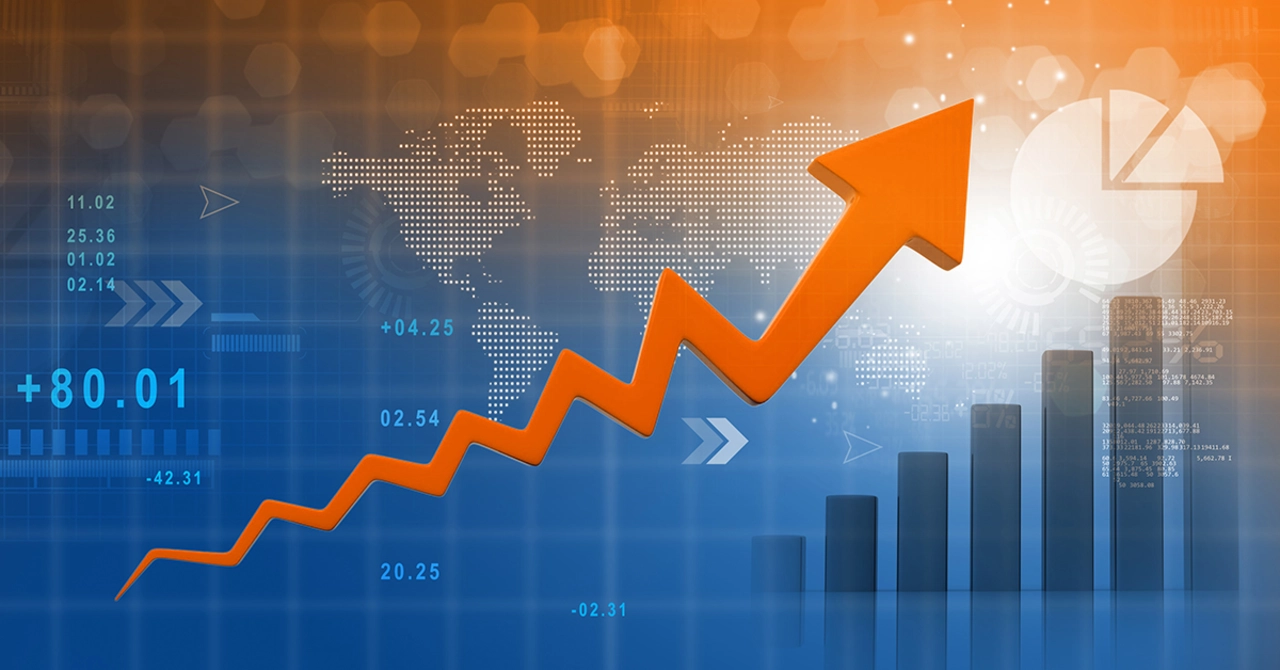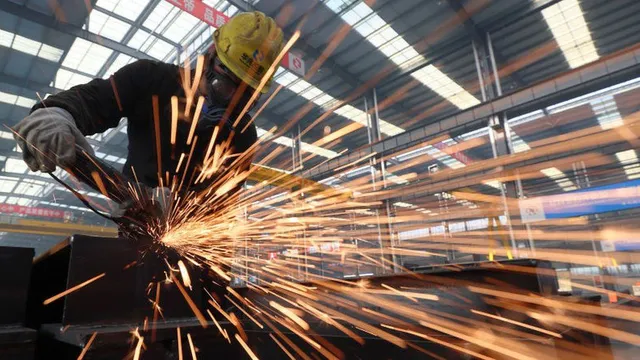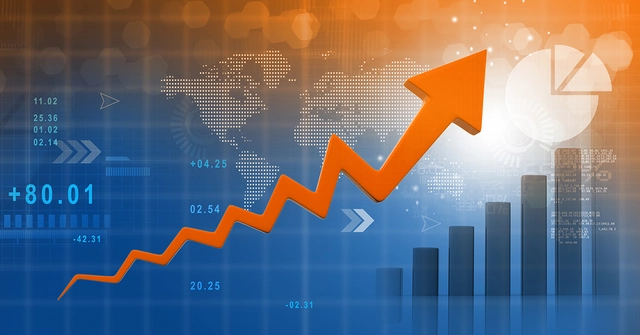Exploring the Correlation Between Economic Growth and Gross Domestic Product
The relationship between economic growth and Gross Domestic Product (GDP) is an important one. GDP is essentially a measure of a country's economic output, and economic growth is the rate of change in economic production, either in terms of the amount of goods and services produced or the value of those goods and services. Both economic growth and GDP are crucial to understanding the health of an economy and its prospects for the future.
There is a clear correlation between economic growth and GDP, as an increase in economic growth will usually lead to an increase in GDP. This is because economic growth is the result of increased production, which in turn leads to increased demand for goods and services. This increased demand leads to increased production and investment, which then contributes to an increase in GDP. The opposite is also true: a decrease in economic growth will usually lead to a decrease in GDP.
When economic growth is strong, it can lead to a rise in employment and wages, which further increases the demand for goods and services. This in turn increases the GDP, which is a measure of the total value of goods and services produced in a country. Conversely, when economic growth is weak, it can lead to a decrease in GDP as demand for goods and services decreases.
It’s important to note, however, that GDP and economic growth are not the same thing. GDP is a measure of economic output, while economic growth is the rate of change in economic production. Therefore, while economic growth and GDP are closely related, they are not one and the same. It is also important to note that GDP is not the only measure of economic performance – there are other indicators that can provide a more complete picture of the economy.
In conclusion, economic growth is closely related to GDP, although the two are not the same thing. GDP is a measure of economic output, while economic growth is the rate of change in economic production. A strong economic growth rate can lead to an increase in GDP, while a weak economic growth rate can lead to a decrease in GDP. Therefore, it is important to understand the relationship between economic growth and GDP in order to get a more complete picture of the health of an economy.
How Economic Growth and Gross Domestic Product Impact Each Other
Economic growth and gross domestic product (GDP) are two terms that are often used interchangeably, but there is a distinct relationship between them. Both economic growth and GDP measure the size and health of an economy, but each measure serves a different purpose. To understand the relationship between these two measures, it is important to first understand what each one measures.
What is Economic Growth?
Economic growth is a measure of the increase in the production of goods and services in an economy over a specific period of time. It is typically measured in terms of the percentage change in real GDP from one period to the next. Economic growth is an important indicator of the overall health of an economy and can be used to compare the performance of different economies over time.
What is Gross Domestic Product (GDP)?
Gross domestic product (GDP) is a measure of the total value of all goods and services produced in an economy over a specific period of time. It is usually measured in terms of the amount of money spent on the goods and services produced. GDP is a more comprehensive measure of the size and health of an economy than economic growth because it includes all goods and services produced in the economy, even those not sold in the market.
How Do Economic Growth and Gross Domestic Product Impact Each Other?
The relationship between economic growth and GDP is one of cause and effect. Economic growth is a measure of the increase in production in an economy and GDP is a measure of the total value of all goods and services produced in an economy. As economic growth increases, so does GDP, and as GDP increases, so does economic growth. This is because an increase in economic growth leads to an increase in the production of goods and services, which in turn leads to an increase in GDP.
In addition, economic growth and GDP can also influence each other in other ways. For example, an increase in GDP can lead to an increase in economic growth as businesses are able to invest more in new technologies and equipment, and hire new workers. Conversely, an increase in economic growth can lead to an increase in GDP as businesses produce more goods and services, which leads to an increase in the total value of all goods and services produced in the economy.
Overall, economic growth and GDP are closely related and have a strong impact on each other. An increase in one will lead to an increase in the other. Understanding the relationship between economic growth and GDP can help governments and businesses make better economic decisions and ensure that their economies are able to grow and thrive.
Examining the Link Between Economic Growth and Gross Domestic Product
Gross Domestic Product (GDP) is a key measure of economic performance, used to calculate the overall size of an economy. It is also closely linked to economic growth, as an increase in GDP is typically an indicator of economic growth. But what is the exact relationship between economic growth and GDP?
In most cases, an increase in GDP is taken as a sign of economic growth, as it suggests that the economy is producing more goods and services. This usually leads to increased employment opportunities, higher wages, and greater economic prosperity for citizens. As the economy grows, businesses are able to invest more in new technologies and capital investments, leading to higher productivity and economic growth.
At the same time, economic growth can also lead to a decrease in GDP. This can happen if businesses are unable to keep up with the increased demand for their goods or services. In such cases, businesses may reduce their output or even scale back production, leading to a decrease in GDP. In addition, economic downturns can also lead to a decrease in GDP, as businesses struggle to stay afloat in the face of declining demand.
It is important to note that while GDP is closely linked to economic growth, it is not the only factor that affects the economy. Factors such as technological innovation, consumer confidence, and government policies also play a role in determining economic growth. Additionally, GDP is not always a reliable indicator of economic health, as it does not take into account other factors such as inflation, unemployment, and trade deficits.
In conclusion, economic growth and GDP are closely linked, with an increase in GDP typically being taken as a sign of economic growth. However, it is important to remember that GDP is not the only factor that affects the economy, and it is not always a reliable indicator of economic health. Other factors such as technological innovation, consumer confidence, and government policies also play a role in determining economic growth.


